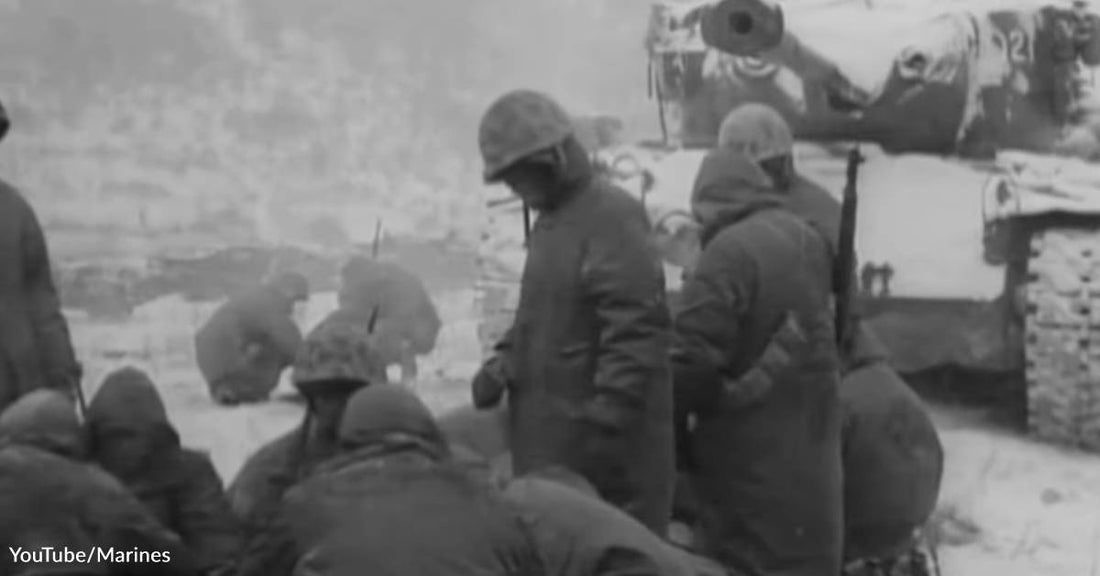The Battle of the Chosin Reservoir
Dan Doyle
Seventy-two years ago, Marines of the 1st Marine Division and the U.S. Army’s 10th Corps were engaged in a battle for their lives at a place called the Chosin Reservoir in what is now North Korea. It would become one of the most desperate and famous battles of that war.
In November of 1950, the 1st Marine Division, along with the Army’s 10th Corps, was among the United Nations forces that were engaged in an offensive to drive the communist North Korean rebels and their Chinese allies back across the Yalu River into China. By the end of the month, they had reached a place called the Chosin Reservoir and were deep into what is now called North Korea, preparing to continue their offensive. On the night of November 27, 1950, two days after Thanksgiving, all hell broke loose. Suddenly, as if out of nowhere, 120,000 Chinese troops of the People's Volunteer Army (PVA) began pouring over the mountainous terrain toward the United States Marine and U.S. Army positions. The PVA had orders to isolate and destroy the entire 1st Marine Division. The total number of U.N. forces, including United States Marine and Army and forces from the Republic of Korea was about 30,000.
 Photo: YouTube/Marines
Photo: YouTube/MarinesThe Chinese PVA troops were so confident that they would succeed in their campaign that they supplied their troops with only 3-4 days of food and ammunition, believing that they would accomplish their mission in that time. It would seem reasonable to think so, as their numbers were so overwhelming in relation to the Marines and U.S. Army forces there at the Chosin Reservoir. What they thought was going to be an easy victory would prove rather to be a very costly battle for all involved.
Over the next 17 days, the Marines and Army forces would fight not only far superior forces but also the effects of the harshest winter of the war. The temperature dropped to as cold as 20 degrees below zero, and the wind chills made it feel even more bitterly cold. Frostbite became another “enemy” that they had to battle along as they fought a fiercely contested retreat southward through the long mountain pass.
 Photo: YouTube/Marines
Photo: YouTube/MarinesAll along the way, the PVA forces threw huge numbers of men against the U.N. forces. They would come shouting and blowing trumpets and whistles as they came, but the Marines and the Army would fight them with such heroic determination and skill that, by the end of the 17-day battle, the PVA had lost 6 of its divisions and suffered some 20,000 dead. They too would suffer many casualties due to frostbite and the effects of that winter weather.
The U.S. casualties numbered 1,029 KIA, 4,582 WIA, and 4,894 MIA or captured. There were also 7,338 “non-battle” casualties, mostly due to frostbite. The PVA casualties included 20,000 KIA and 28,954 “non-battle” casualties, totaling 48,156.
 Photo: YouTube/Marines
Photo: YouTube/MarinesThis Battle of The Chosin Reservoir was one of the most hard-fought battles of the Korean War. It was a desperate battle for survival against overwhelming odds. The Marines and the U.S. Army forces had to fight and win against two enemies - the massive numbers of Chinese PVA troops and the fierce realities of winter. The costs of that battle were immense. And those who fought and survived it would carry those memories for the rest of their lives.
This past November 27th marked the 72nd anniversary of the Battle of Chosin Reservoir, with most of us completely unaware of it. It is a sad fact that the Korean War is known as the “forgotten” war. Those American veterans who fought in it, and those who sacrificed their all deserve our attention, our honor, and our respect. Their sacrifices, their courage, and their dedication to duty are among the highest in the history of our Armed Forces.
We must never forget our Korean War Veterans. If you know one, thank him for his service.
https://www.youtube.com/watch?v=q9LnILXFi4I


